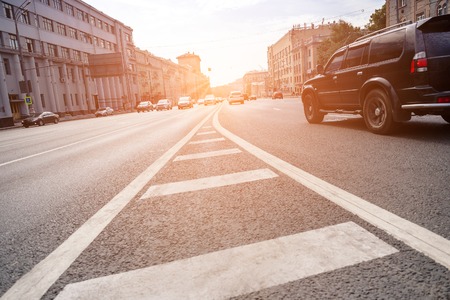Introduction: Car Meetups as a Cornerstone of Street Racing Culture
In the landscape of American automotive enthusiasm, car meetups have emerged as pivotal events that shape and sustain street racing communities. Whether they are spontaneous gatherings in mall parking lots or well-organized meets sanctioned by local clubs, these events serve as more than just a showcase for modified vehicles. Car meetups provide an essential platform for individuals to build relationships, share technical knowledge, and express their passion for cars in a supportive environment. Within this informal yet tightly knit network, enthusiasts find common ground regardless of background, age, or experience level. This unique blend of camaraderie and competition not only fuels the growth of street racing culture across the United States but also fosters a strong sense of belonging and identity among its members.
Facilitating Social Networks and Safe Spaces
Car meetups serve as essential social gateways within the street racing community, bridging gaps between seasoned racers and newcomers. These gatherings foster environments where individuals can connect without the pressure of immediate competition or judgment. For many enthusiasts, attending a car meetup is often the first step into a broader network of like-minded individuals who share both technical expertise and cultural values. The open and generally supportive atmosphere encourages questions, discussions about modifications, and knowledge exchange related to cars, safety, and local street racing etiquette.
Building Connections Across Experience Levels
At car meetups, hierarchies based on skill or status tend to be less pronounced than in formal racing events. Both experienced drivers and novices benefit from informal mentorship opportunities, creating a unique peer-to-peer learning environment. Newcomers can ask for advice about performance tuning or local regulations, while veterans often enjoy sharing their hard-earned insights. This dynamic helps to lower barriers to entry and strengthens community bonds.
Typical Interactions at Car Meetups
| Participant Type | Common Activities | Benefits Gained |
|---|---|---|
| Newcomers | Seeking advice, observing car builds, networking | Knowledge acquisition, social integration, access to resources |
| Experienced Racers | Mentoring, sharing stories, showcasing vehicles | Status building, influence expansion, satisfaction from teaching |
| Tuners/Technicians | Demonstrating upgrades, discussing technology trends | Business opportunities, reputation growth, tech exchange |
| Spectators/Fans | Learning by observation, joining conversations | Cultural immersion, entertainment, potential future participation |
The Value of Non-Judgmental Environments
A defining characteristic of most car meetups is their non-judgmental ethos. Enthusiasts are encouraged to participate regardless of their vehicle’s make or model—be it an American muscle car or an imported tuner. This inclusivity not only broadens the appeal of street racing culture but also ensures a steady influx of fresh perspectives and ideas. In turn, this makes car meetups critical hubs for sustaining and evolving the street racing community in a safe and supportive manner.
![]()
3. Sharing Knowledge, Skills, and Tech Innovations
Car meetups play a pivotal role in the dissemination of technical know-how within street racing communities across the United States. These gatherings serve as informal hubs where enthusiasts converge to exchange information on everything from advanced engine tuning techniques to the nuances of custom fabrication. The culture of sharing is deeply embedded; seasoned builders and newcomers alike engage in conversations that break down complex automotive modifications into actionable steps. This environment not only accelerates the learning curve for novices but also challenges experienced builders to refine their own craft.
One of the defining aspects of these meetups is the open discussion about the latest trends in performance tuning. Whether its turbocharging strategies, ECU remapping, or drivetrain upgrades, these sessions keep members at the cutting edge of automotive technology. Attendees often showcase new products, tools, or DIY solutions that push the boundaries of what’s possible within legal—or sometimes gray—areas of modification. In this way, car meetups act as incubators for grassroots innovation.
Additionally, American car culture places a high value on individuality and creativity. Meetups provide an arena for owners to display unique builds and swap stories about overcoming technical hurdles. Such exchanges frequently inspire others to elevate their own projects, leading to a virtuous cycle where build quality and engineering sophistication are continuously raised across the community.
Ultimately, by fostering a collaborative spirit centered around knowledge-sharing and tech innovation, car meetups do more than just strengthen social bonds—they collectively advance the subculture itself. As enthusiasts learn from one another and experiment with new ideas, they drive progress that defines both the identity and future trajectory of street racing communities nationwide.
4. Reinforcing Group Identity and Local Traditions
Regional car meetups play a critical role in cementing the collective identity of street racing communities across the United States. These gatherings are more than just social events; they are platforms where shared norms, values, and rituals are practiced, strengthening bonds among participants and establishing a sense of belonging. Each region develops its own unique culture, influenced by local history, demographics, and even climate, which shapes how enthusiasts express their passion for cars and racing.
Through recurring rituals—such as cruise nights, burnout contests, or specific car showcases—participants affirm their commitment to group ideals and codes of conduct. For example, West Coast meetups may emphasize Japanese tuner culture and drifting techniques, while Midwest gatherings might showcase American muscle cars and nostalgia drag races. These distinctions foster pride within each community and create a competitive yet respectful atmosphere between different regions.
Key Elements that Reinforce Community Identity
| Element | Description | Regional Variations |
|---|---|---|
| Signature Events | Annual or monthly gatherings that serve as focal points for the community | East Coast “Midnight Runs,” Southern “Car & Coffee” mornings |
| Car Preferences | Dominant vehicle types reflecting local tastes and histories | West Coast import tuners vs. Midwest classic muscle cars |
| Rituals & Traditions | Common activities that build camaraderie and reinforce unwritten rules | Burnout competitions in Texas, lowrider cruises in Los Angeles |
| Group Norms & Values | Shared codes around safety, respect, and competition | No-race zones in urban areas, emphasis on craftsmanship in rural scenes |
This diversity in traditions not only differentiates local scenes but also creates opportunities for cross-regional exchanges when members travel or connect online. The mutual respect for each others customs contributes to a broader national culture of street racing while preserving the uniqueness of individual communities. Ultimately, these meetups do more than just gather people—they nurture a legacy that is handed down through generations of automotive enthusiasts.
5. Organizing Racing Events and Setting Unwritten Rules
Car meetups play a pivotal role in the orchestration of street racing activities across American cities. Functioning as informal but highly organized hubs, these gatherings bring together enthusiasts who share a passion for cars, speed, and adrenaline-fueled competition. Within the casual environment of a parking lot or an industrial backroad, participants engage in detailed discussions that lay the groundwork for future races.
Planning Races Behind the Scenes
Meetups provide the perfect cover for racers to coordinate logistics discreetly. Through face-to-face interaction, drivers and crews can discuss optimal locations, preferred times, and even scout out new routes while avoiding unwanted attention from law enforcement. This underground organization ensures that only trusted members are privy to sensitive information, preserving both secrecy and exclusivity within the community.
Enforcing Safety Protocols
Despite the illicit nature of street racing, safety remains a surprisingly significant concern among serious participants. At meetups, unwritten safety protocols are established and communicated—ranging from pre-race vehicle inspections to basic medical preparedness. Experienced racers often take on mentorship roles, stressing the importance of minimizing risks by setting clear boundaries: no racing when bystanders are present, mandatory spotters at start and finish lines, and strict adherence to agreed-upon signals.
Negotiating Social Contracts
The social dynamics at car meetups also foster a unique code of conduct—a set of unwritten rules that govern behavior both on and off the road. Through ongoing negotiation, attendees establish standards regarding respect between drivers, handling disputes, sharing winnings, and consequences for breaking trust. These informal agreements help maintain order within a scene that could otherwise devolve into chaos, underscoring how essential car meetups are in sustaining not just racing events but the broader street racing culture itself.
6. Navigating Law Enforcement and Legality
As street racing communities grow, law enforcement agencies across the United States have intensified their scrutiny of car meetups and related activities. For many enthusiasts, balancing their passion for high-performance vehicles and racing with the realities of legal risks is an ongoing challenge. At the core of this dynamic lies a need to develop responsible strategies that allow the community to thrive without crossing into dangerous or illegal territory.
Community Strategies for Risk Mitigation
Car meetups serve as critical forums for educating members about legal boundaries. Organizers and veteran participants often take proactive steps to set ground rules—discouraging reckless behavior, enforcing codes of conduct, and designating separate spaces for static display versus informal racing demonstrations. These self-imposed guidelines help minimize attention from law enforcement while fostering a sense of collective responsibility.
Communication of Dos and Don’ts
One effective method employed at meetups is the clear communication of dos and don’ts. Event leaders frequently address attendees directly, explaining which activities are permissible and which actions could jeopardize the event or put members at risk. Discussions often include reminders about noise ordinances, safe driving on public roads, and the consequences of illegal street racing. By standardizing expectations, communities build mutual trust and reduce incidents that might provoke police intervention.
Adapting to Increased Scrutiny
With rising law enforcement presence at popular gathering spots, car enthusiasts have adapted by relocating meetups to private venues or sanctioned tracks whenever possible. This shift not only reduces legal exposure but also enhances safety for both drivers and spectators. Additionally, some communities collaborate with local authorities to create structured events that blend excitement with oversight, demonstrating a willingness to coexist within legal frameworks.
Ultimately, these efforts underscore how car meetups are more than just social gatherings—they function as educational hubs where members learn to navigate the complexities of legality in American car culture. As enforcement becomes stricter, the ability of street racing communities to self-regulate will be crucial for preserving their passion in a lawful manner.
7. Conclusion: The Enduring Impact of Car Meetups
Car meetups have proven to be a cornerstone of American street racing culture, acting as both the physical and social infrastructure upon which vibrant communities are built. These gatherings continue to play a pivotal role in sustaining the energy and evolution of street racing networks by fostering genuine connections, facilitating knowledge exchange, and strengthening a shared sense of identity among enthusiasts. Despite the changing landscape of automotive technology and increasing scrutiny from law enforcement, car meetups have demonstrated remarkable adaptability—evolving in format, location, and purpose to meet the needs of a diverse and passionate community. Their enduring significance lies not just in the cars themselves, but in the culture of camaraderie, mutual support, and creative expression that defines American street racing. As long as there are individuals driven by curiosity, competition, and a love for automotive innovation, car meetups will remain at the heart of a resilient subculture—continuously shaping and sustaining the future of street racing within the broader American automotive landscape.

